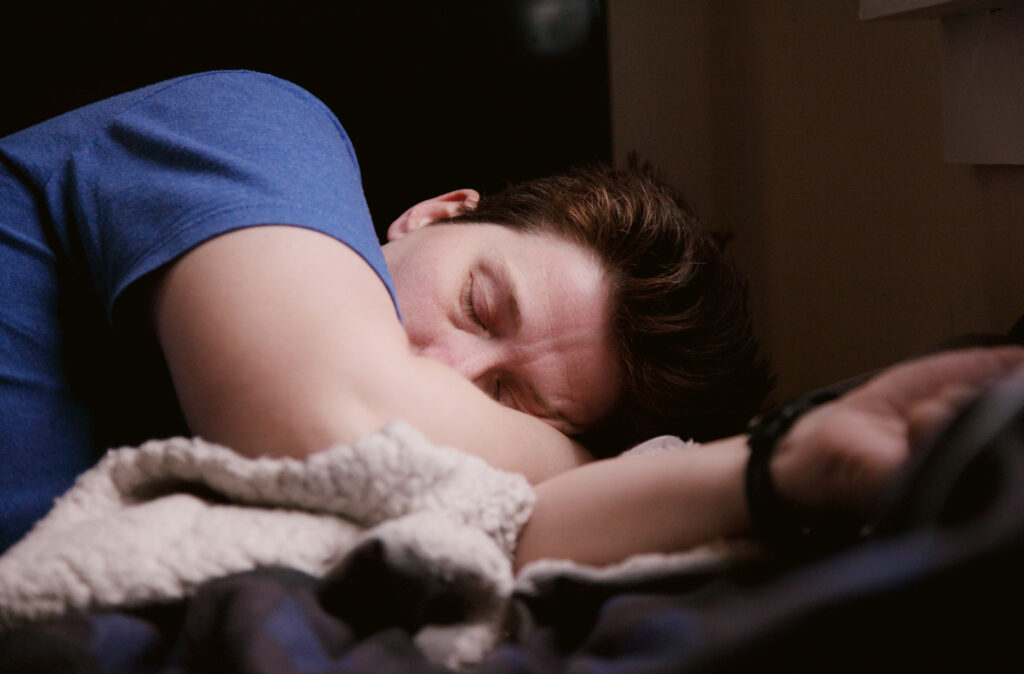
Intrusive Sleep is one of four common sleep problems often experienced by people with ADHD
The other three sleep issues are:
1. Difficulty Falling Asleep – Recent research shows that 25-50% of adults with ADHD find it difficult to switch off and go to sleep at night.
2. Restless Sleep – A fitful sleep of tossing and turning is commonplace among people with ADHD. They often wake feeling exhausted rather than refreshed.
3. Difficulty Waking Up -Anecdotal evidence shows people with ADHD waking up multiple times after going to bed before falling into ‘the sleep of the dead’ around 4am. Sleeping through alarms is a regular occurrence which can lead to problems with work, family or other commitments.
Intrusive Sleep can occur when that person suddenly loses interest or becomes bored with whatever activity they are doing or person they are listening to. Their nervous system disengages so abruptly that it can cause them to immediately become drowsy or even fall asleep on the spot.
The science behind Intrusive Sleep
Marian Sigurdson PhD is an expert in electroencephalography (EEG), which is the recording of electrical activity in the brain, and says you can actually see a sudden influx of different brain waves (theta waves) during an episode of intrusive sleep.
She explains: “We all have seen “theta wave intrusion,” in the student in the back of the classroom who suddenly crashes to the floor, having “fallen asleep.” This was probably someone with ADHD who was losing consciousness due to boredom rather than falling asleep.”
Intrusive sleep is not something to be dismissed as it can be life-threatening to the person and others if it occurs while driving on long or monotonous stretches of straight roads.
Unfortunately, it’s hard to record exactly how widespread the issue of intrusive sleep is as it is difficult to recreate the conditions required for testing in a laboratory.
Intrusive Sleep and ADHD
In this Tiktok video, therapist Alex Hogg discusses why intrusive sleep is more common among the neurodivergent community:
@alosaurolophus intrusive sleep #myadhdlife #neurospicy #mentalhealthmatters #tismwhisperer #adhdad #teamnd #tiktokcounselor
♬ original sound - Alex Hogg
Tools for coping with Intrusive Sleep
He also offers the following advice for dealing with intrusive sleep:
- If you feel yourself starting to lose interest or get drowsy, get up, move around and get some fresh air if possible
- Eat something with an intense flavour – very spicy, bitter or sour
- Drink a very cold beverage
- Chew a strongly-flavoured chewing gum
- Keep a notebook handy to doodle in or make notes on
- If the situation allows it, listen to upbeat music
Click here for more information on the effects of ADHD on sleep.
